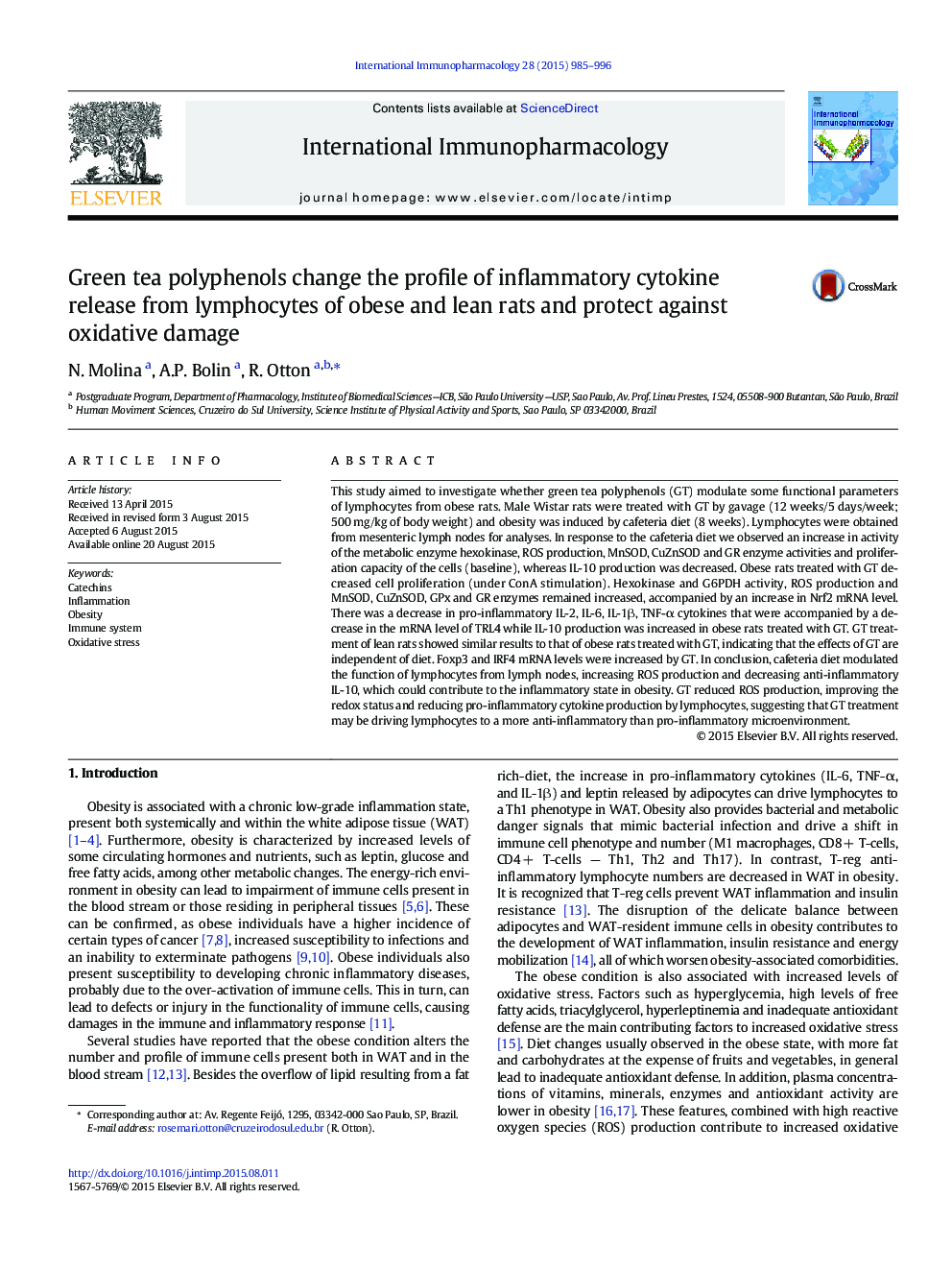| کد مقاله | کد نشریه | سال انتشار | مقاله انگلیسی | نسخه تمام متن |
|---|---|---|---|---|
| 2540393 | 1122591 | 2015 | 12 صفحه PDF | دانلود رایگان |
• Obese condition increased lymphocyte ROS production and decreased IL-10 release.
• Obese rats treated with green tea (GT) decreased cell proliferation and ROS production.
• GT treated rats reduced ROS, pro-inflammatory cytokines and improved redox status.
• GT may be driving lymphocytes to a more anti-inflammatory microenvironment.
• We reinforce the importance of natural compounds as immunomodulatory mediators.
This study aimed to investigate whether green tea polyphenols (GT) modulate some functional parameters of lymphocytes from obese rats. Male Wistar rats were treated with GT by gavage (12 weeks/5 days/week; 500 mg/kg of body weight) and obesity was induced by cafeteria diet (8 weeks). Lymphocytes were obtained from mesenteric lymph nodes for analyses. In response to the cafeteria diet we observed an increase in activity of the metabolic enzyme hexokinase, ROS production, MnSOD, CuZnSOD and GR enzyme activities and proliferation capacity of the cells (baseline), whereas IL-10 production was decreased. Obese rats treated with GT decreased cell proliferation (under ConA stimulation). Hexokinase and G6PDH activity, ROS production and MnSOD, CuZnSOD, GPx and GR enzymes remained increased, accompanied by an increase in Nrf2 mRNA level. There was a decrease in pro-inflammatory IL-2, IL-6, IL-1β, TNF-α cytokines that were accompanied by a decrease in the mRNA level of TRL4 while IL-10 production was increased in obese rats treated with GT. GT treatment of lean rats showed similar results to that of obese rats treated with GT, indicating that the effects of GT are independent of diet. Foxp3 and IRF4 mRNA levels were increased by GT. In conclusion, cafeteria diet modulated the function of lymphocytes from lymph nodes, increasing ROS production and decreasing anti-inflammatory IL-10, which could contribute to the inflammatory state in obesity. GT reduced ROS production, improving the redox status and reducing pro-inflammatory cytokine production by lymphocytes, suggesting that GT treatment may be driving lymphocytes to a more anti-inflammatory than pro-inflammatory microenvironment.
Journal: International Immunopharmacology - Volume 28, Issue 2, October 2015, Pages 985–996
